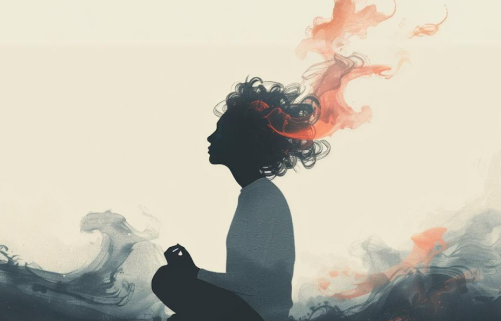It’s one of the most widely used and evidence-based forms of psychotherapy, especially effective for treating anxiety, depression, and other common mental health conditions.
CBT (Cognitive Behavioural Therapy) helps you to learn more helpful ways of thinking and reacting in everyday situations. Changing the way you think, and what you do, can help you to feel better.
Unlike some other talking therapies, CBT focuses on your current challenges rather than on your past experiences. It aims to improve your state of mind by teaching you to spot the links between your thoughts, actions and feelings.

In sessions, you’ll work closely with a trained therapist to:
Identify unhelpful or negative thought patterns
Understand how these thoughts impact emotions and behaviours
Learn tools to challenge and reframe these thoughts
Build healthier habits and coping strategies
It’s a structured, collaborative process focused on real-life solutions you can start applying right away.
CBT is rooted in the idea that it’s not just events themselves that affect us, but how we interpret them. For example:
Someone walks past without saying hello. You might think:
“They didn’t see me.”
“They’re ignoring me.”
“I must have upset them.”
“They seemed distracted — I hope they’re okay.”
Each interpretation can trigger a different emotional and physical response — from anger or anxiety to sadness or concern — which in turn influences how you behave.
Most of the time, we do not question the thoughts we have, assuming they are plausible and accurate. In CBT, you are taught to examine such thoughts, which are causing unhelpful emotions, to see how accurate they actually are. Because of the immediate effect on your emotions and subsequently your behaviour, such negative automatic thoughts are examined early in therapy.
Struggling with sadness, hopelessness, or self-criticism? Compassion-focused CBT can help lift your mood and restore hope.


Social anxiety is more than shyness — it’s an intense fear of everyday social situations that can impact confidence and daily life.
OCD involves distressing repetitive thoughts and urges that lead to compulsive behaviors—CBT can help manage these symptoms.


Anxiety causes persistent nervousness and fear that can affect your mood and daily life. Therapy can help you build resilience and coping skills.
PTSD is a condition triggered by traumatic events, causing flashbacks, anxiety, and distressing thoughts. Effective treatment can help you recover and improve daily functioning.


After losing a loved one, grief can feel overwhelming. Therapy offers a safe, supportive space to process your emotions and begin healing.
Phobias are intense, irrational fears that cause avoidance. CBT can help you manage anxiety and regain control.

The sessions are 50 mins in duration.
We ask for 24hrs notice if you need to cancel an appointment otherwise the full session fee will be charged.
Yes, we offer online sessions as well as face to face sessions in the office.
Depending on the client’s presenting difficulties and personal goals, it can be difficult to state an exact number of sessions as this will be different for each client. This can be discussed at the first session with any other concerns a client may have.
Confidentiality is the cornerstone of the therapeutic relationship. However, if you as the client are deemed to be a risk to yourself or others, this confidentiality will be deemed null and void. In addition, if there is any disclosure of childhood sexual abuse and the perpetrator’s identity is disclosed, the confidentiality again will be null and void.
We cannot treat children young people under the age of 18yrs or who are still attending school.
We cannot provide these assessments.